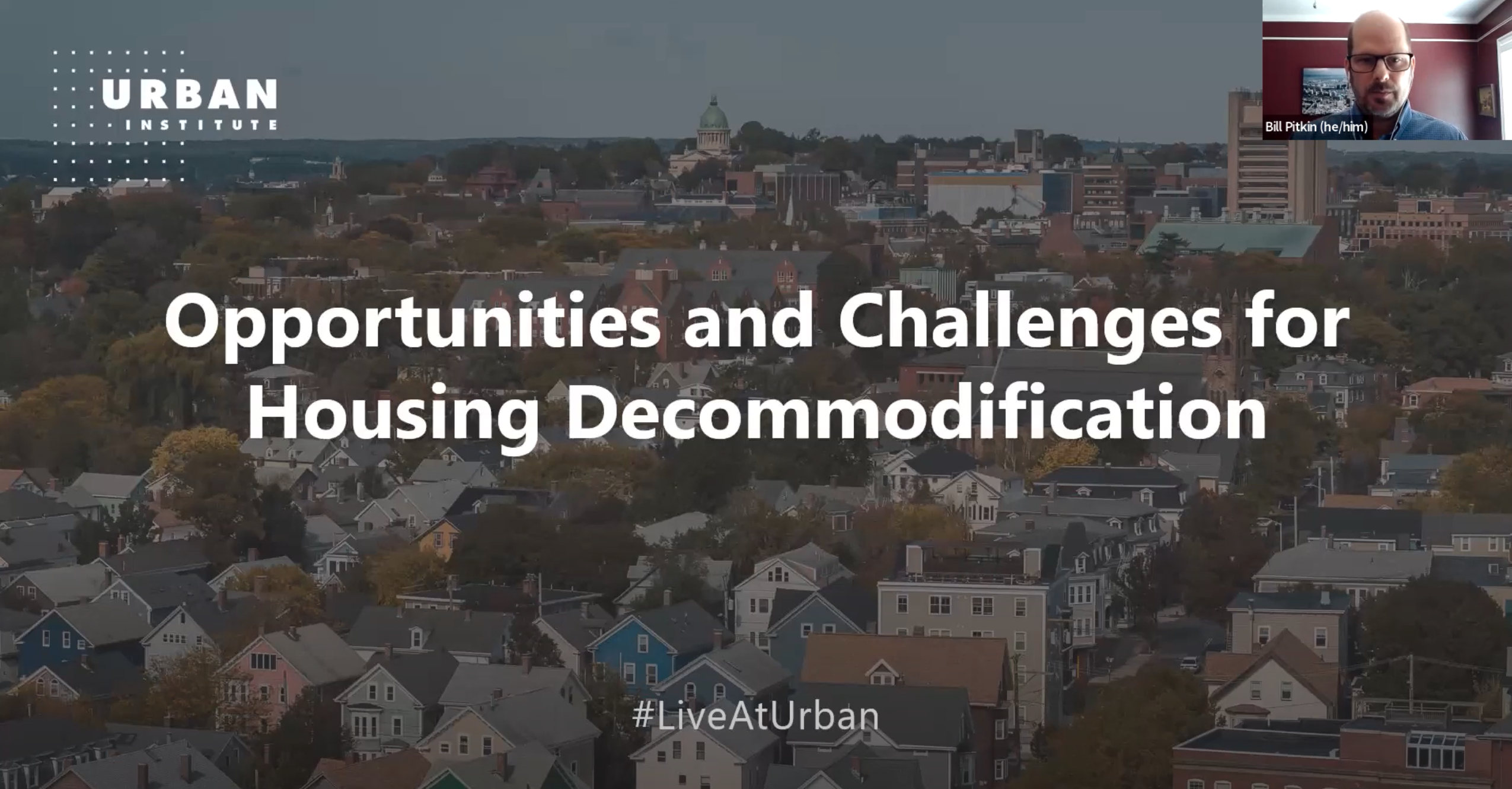Panelists participating in a recent webinar hosted by the Urban Institute discussed various actions that could help alleviate the nation’s affordable housing crisis.
Among the possible remedies: inclusionary zoning policies, various reforms to increase local affordable housing stock, fees on new development to offset the impact on public infrastructure, increased support for first-time homebuyers, and granting tenants the right of first refusal to match offers when a landlord is considering selling their property, according to a report by SmartCities Dive.
Some panelists advocated for more investment in public housing, social housing, and shared equity models such as community land trusts, where residents collectively own property through an independent body.
Such models are examples of “decommodified housing” — a term panelists used to describe housing that supports collective well-being and economic mobility over its role as an individual financial asset. One panelist noted that the collective ownership of land is not foreign, as a condominium is a well-known type of collective ownership with individuals owning units within a property that is jointly owned.
The challenge to spurring more innovative options for home ownership is getting the public and banks to believe that decommodified housing is worthy of investment, a panelist said. Goals should include moving people from public housing into affordable rental properties and eventually into home ownership. More alternative ownership models would make the latter more achievable.
Related Stories
| Aug 11, 2010
Lifestyle Hotel Trends Around the World
When the Rocco Forte Collection opens the Verdura Golf & Spa Resort in Sicily in early 2009, the 200-room luxury property will be one of the world's newest lifestyle hotels. Lifestyle hotels cater to guests seeking a heightened travel experience, which they deliver by offering distinctive—some would say avant-garde, or even outrageous—architecture, room design, amenities, and en...







